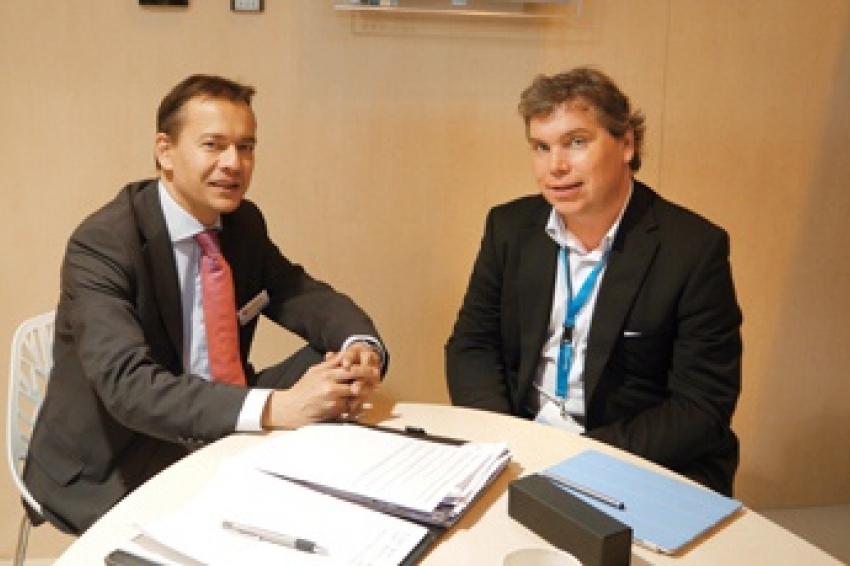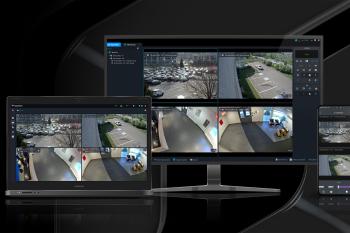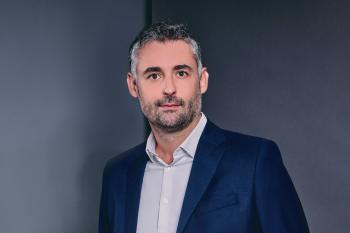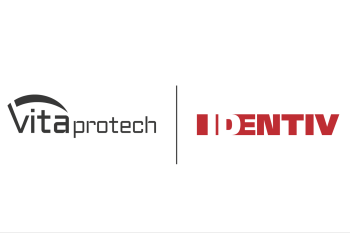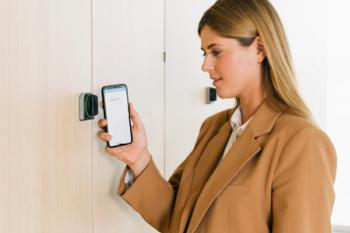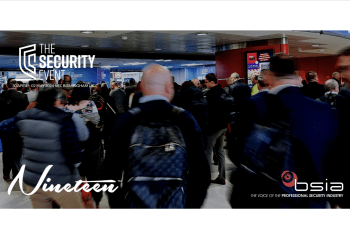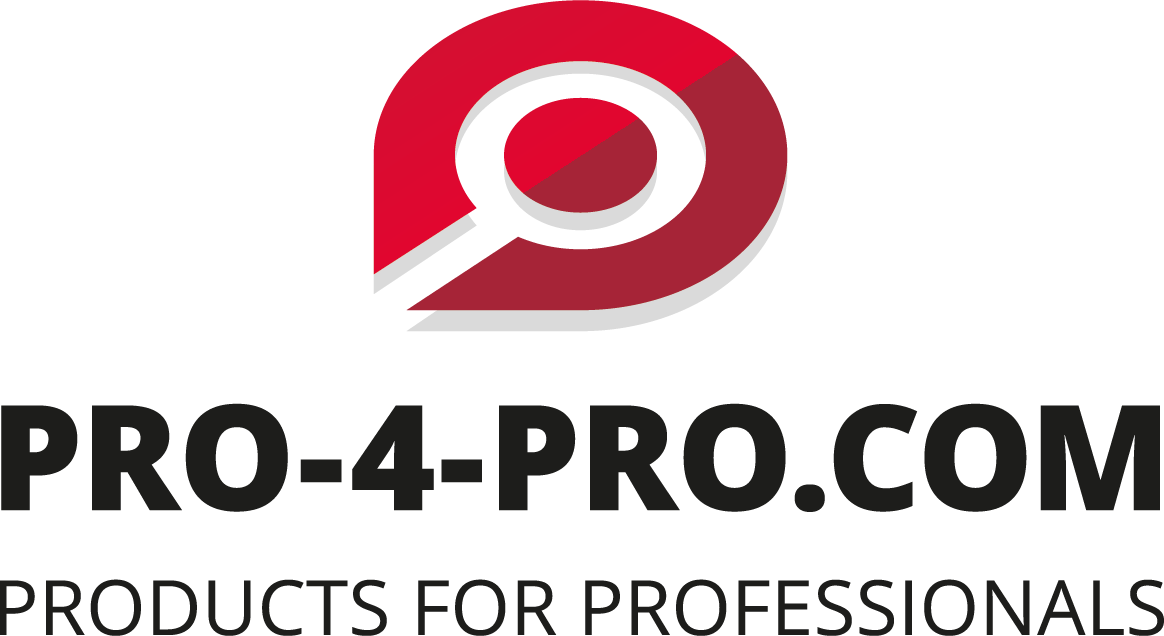Interview with Marc Handels, Vice President Global Marketing & Sales at Salto Systems
24.10.2012 - In today's fast moving and constantly changing world buildings and workspaces need to be flexible and adaptable, ready to incorporate new technologies. Recognising this, Salto has ...
In today's fast moving and constantly changing world buildings and workspaces need to be flexible and adaptable, ready to incorporate new technologies. Recognising this, Salto has in the recent years developed new access control concepts and a wide range of innovative products such as the Salto virtual network and the XS4 access control platform. GIT-SECURITY.com had the opportunity to talk to Marc Handels, Vice President Global Marketing & Sales at Salto Systems, about the access control market and the changes in an ever changing and demanding security environment.
GIT-SECURITY.com: Despite the Euro crisis, Salto seems to be a fast growing company. Is the trend towards electronic locks and access control systems the main reason for Salto growing faster than the rest of the market?
Marc Handels: You are right, Salto has grown rapidly over the past few years. Many people do not know that we had a turnover of more than 46 million Euro in 2011. In 2010 we grew by 25% and in 2011 by 30%. The market for electronic locks is certainly the part of the market for access control systems which is growing most rapidly. However, the fact that we are in a growth market only partly explains these growth figures in economically challenging times. An important reason for our success is certainly that when we started the business back in the year 2000, we concentrated on the market for wireless control elements - especially for the market outside of hotel applications. Although there were already electronic systems in which the data for the access rights were saved directly to the element, there were no systems which were suitable for large applications with more than ten doors. Administration of rights was the main problem. We then developed Data-on-Card, Salto‘s virtual network (SVN). This technical innovation was so successful that we won projects for a wide range of applications throughout the world with this concept. Initially, the system was mainly used in the health-care sector, in educational establishments and in public areas. It was definitely the right decision to start in this segment. It was also right not to rely on cheap systems which replace mechanical elements from the outset, but rather to use high quality elements, which although they are more expensive, offer enormous advantages in flexibility and long-term costs.
So your success is based on the fact that you do many things differently to other companies?
Marc Handels: You could put it that way. In contrast to most companies, we were a global player from the very start. Unlike other companies we did not develop the home market and then take care of exports. Initially, the Spanish market only accounted for about 8% of our sales. We knew that large companies would copy our systems, so we couldn‘t waste time in gaining access to the international market. A result of this attitude is that from the very beginning our modular systems could be easily adapted to the different requirements of individual countries.
Has your system now become established?
Marc Handels: The market has changed radically, especially in the past three years. While initially our systems were often used as a substitute for mechanical locks, we now handle many large projects, where our locking systems are used from A to Z. The opposing argument of large access control companies from our early days, that „access control needs cables" is long since a thing of the past. Interestingly, it was pressure from our end user customers which brought about the change. They told the large companies in the sector that they had good experiences with hundreds of doors which were managed offline by Salto, and that they wanted a mixture of offline and online access control points for their projects. End user customers like flexibility and want to have various elements integrated into a system for their projects. We are now definitely seeing a convergence between traditional security systems, where elements such as access control, video surveillance systems and alarm systems are linked by cable, together with offline components, which in reality are often no longer „offline", but rather are in contact with the main system via wireless or SVN. One of the ways Salto is addressing this ‘convergence' is by integrating and partnering with a wide range of major access control companies including brands such as CEM Systems, Gallagher, Gunnebo, Honeywell, Nedap and Siemens to name but a few. Such partnerships offer significant benefits to customers looking to deploy integrated solutions into their environment.
The time to market for your new products is very short. How do you manage to do this?
Marc Handels: One of the reasons for our success is that although our company is managed like an international business, we have many elements such as speed and flexibility, which are more typical for a small or medium sized business. We rely greatly on people, their motivation and passion, regardless of whether they work in sales, development or production. We must remain innovative, and we do this by rapidly implementing ideas, which come from our customers, individual employees or research facilities, in the form of products. We call this open innovation. We actively promote ideas and - most important - we do not waste time in the decision-making phase. Our Development Manager and co-founder, Juan Imedio drives ideas forward and I, with my responsibility for sales and marketing can also not wait until we have a new product on the market. It is clear to us that after the starting phase, in which although we had unique products, we had to explain a lot of things to our customers, we are now in a phase where open innovation is especially important. Competition is growing, but our customers always know that Salto is the technological leader and is continuously developing its products as well as keeping systems which have already been installed at a state-of-the-art level.
Producers of more traditional access control products were arguing for years that electronic locks and access control systems are less secure and reliable than traditional systems. Is this argument still justified?
Marc Handels: An access control system is only as secure as the weakest link in the chain, which usually consists of three elements: the components which lock the door, i.e. the lock, the control element and the software. We integrate all of these elements into our system. Our locks are as secure as, or even more secure than those of traditional access control companies with conventional components. The same applies for the control element, including encoding. Here, we utilise all available secure card technologies and for each of our door fittings, the customer can select those which he will use exclusively or in parallel. e.g. mifare classic, desfire, desfire evolution one or Legic. This means that according to the selection, the customer can obtain the security level which he requires - up to the very highest security standard - just as with traditional access control systems. One thing must be stated very clearly: anyone who selects a data-on-card solution and therefore a wireless solution obtains a different control element. However, anyone who previously had a mechanical lock did not have any control whatsoever, i.e. replacing such a lock with one of our offline systems increases security. Of course, not to the level of a cabled real-time system, which we also offer and sell very successfully - but which does not come into question in many cases. We offer our customers a full freedom of choice with regard to the security level. They can choose between offline and online systems and have a free choice of the card technology. What is important is to increase the security level of the entire system, taking into account the costs and the technical effort.
You recently announced a partnership with BioCote, a provider of antimicrobial coating technology. Is the hygiene aspect only important for Health Care applications or would you consider antimicrobial coating as something which is also interesting for other markets?
Marc Handels: In the field of health care spreading of germs and hand hygiene is of course an important issue and there is a great demand for antimicrobial coatings - which we have catered for. In two other fields, the food processing industry and the packaging industry, this type of coating for door fittings and access control elements is now almost standard. There are also other applications in the field of education, for example nursery schools. All of our cylinders can be equipped with Biocote coatings and for our new iCare key cabinets, Biocote coating is a factory standard.
The move towards using Near Field Communications (NFC) technology is obvious. Is the access control market ready for NFC solutions and what does Salto offer the customer?
Marc Handels: We have been involved with this topic since 2006 and are closely observing developments in this field, as you can see from the article about this technology in GIT SECURITY 2/March 2012. In this area we have decided not to use any marketing tricks, as NFC is a very important issue and with our data-on-card technology Salto is almost predestined to use this technology. NFC is a very important topic, in which access control is only a small aspect. There have been and still are many important players in this market and over the past years there have been many changes in the technology, which we have all followed at Salto and where we were involved in a large number of developments. The Security exhibition in Essen will be the moment when we can show the first results which demonstrate the true potential of this technology.

